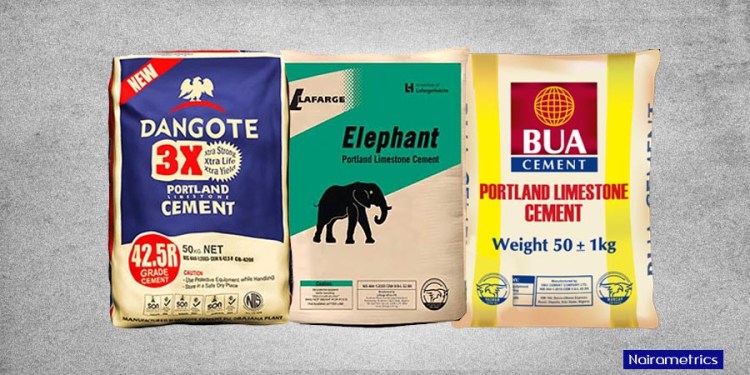
In recent years, Nigeria has found itself entangled in a perplexing predicament – the exorbitant cost of cement. This indispensable construction material, vital for infrastructure development and housing, remains disproportionately expensive within the nation, creating a stark contrast to its more affordable availability in other African countries. This persistent issue has sparked numerous debates, with fingers often pointed at the two major private cement producers in Nigeria: Dangote Cement and BUA Cement. The central question in this ongoing discourse is whether these industry giants are fulfilling their ethical obligations to ease the financial burden on the struggling Nigerian populace, striving to meet their housing demands.
To grasp the moral intricacies of cement pricing in Nigeria, one must first navigate the terrain of the cement industry itself. Cement, undeniably a pivotal sector, holds far-reaching consequences for the nation’s infrastructure and the well-being of its citizens. In Nigeria, this industry is predominantly dominated by Dangote Cement, founded by Africa’s wealthiest man, Aliko Dangote, and BUA Cement, a steadily growing competitor.
Dangote Cement, with its colossal reach extending far beyond Nigeria’s borders, boasts cement plants across several African nations, solidifying its position as one of the continent’s largest cement producers. Its size and influence have elevated Dangote Cement into a decisive force, shaping not only the pricing dynamics within Nigeria but also in neighbouring countries.
Register for Tekedia Mini-MBA edition 19 (Feb 9 – May 2, 2026): big discounts for early bird.
Tekedia AI in Business Masterclass opens registrations.
Join Tekedia Capital Syndicate and co-invest in great global startups.
Register for Tekedia AI Lab: From Technical Design to Deployment (next edition begins Jan 24 2026).
BUA Cement, though smaller in scale compared to its behemoth counterpart, has been strategically increasing its market share within Nigeria. It plays a significant role in the cement landscape, providing a semblance of competition in an otherwise consolidated market.
As we delve deeper into the moral economy of cement pricing, it becomes evident that several economic forces are at play, contributing to the persistently high cost of cement in Nigeria. Production costs, a critical factor, encompass raw materials, labour, and energy expenses, all subject to fluctuations influenced by government policies, currency exchange rates, and global market dynamics. Market dominance by a select few industry giants further limits the competitive landscape, rendering pricing flexibility a challenging endeavour. Infrastructure challenges, ranging from inadequate transportation networks to an unreliable power supply, compound operational costs for cement producers, adding to the complexity of the issue.
The roles of Dangote Cement and BUA Cement in shaping the pricing landscape are central to the debate. These private companies are naturally driven by profit maximization, a fundamental tenet of their existence. However, they also carry a significant social responsibility, one that extends beyond profit margins. They are tasked with finding a delicate equilibrium between profitability and affordability, particularly in a nation like Nigeria, where housing is an acute issue.
Market competition, or the lack thereof, plays a pivotal role in price regulation. The dominance of Dangote Cement and BUA Cement not only necessitates competition between them but also entails fostering the growth of smaller, local cement producers to instigate competition and alleviate price pressures. Collaborative efforts with the government to formulate policies conducive to affordable housing and infrastructure development are equally crucial for sustainable change.
Yet, the moral imperative underpinning this issue transcends economics and market dynamics. It is rooted in the undeniable housing crisis plaguing Nigeria, where millions of citizens lack access to decent housing. High cement prices only exacerbate this crisis, rendering it a moral duty for cement producers to actively contribute to its resolution. Cement, more than just a building material, symbolizes prosperity and development, carrying the potential to directly impact the economic well-being of Nigerians.
Ethical business practices are at the heart of this moral conundrum. Cement producers must adhere to principles of fairness, transparency, and community engagement. Their actions should reflect a steadfast commitment to the betterment of society, ensuring that their profit-driven endeavours do not compromise the well-being of the Nigerian populace.
The moral economy of cement pricing in Nigeria is a multifaceted issue influenced by economic realities, market dynamics, and the actions of private producers. Dangote Cement and BUA Cement, as industry leaders, bear a weighty responsibility in addressing this challenge. Striking the elusive balance between profit-making and social responsibility is essential in a nation grappling with a housing crisis.
The moral imperative lies in creating an environment where cement prices are equitable, enabling Nigerians to access decent housing and contributing to the nation’s development. Stakeholders, encompassing government entities, industry players, and civil society, must converge and collaborate to forge a sustainable and morally sound solution to the high cost of cement in Nigeria. Only then can Nigeria build a stronger and more equitable future for all its citizens, where the foundations of prosperity are accessible to each and every one.



